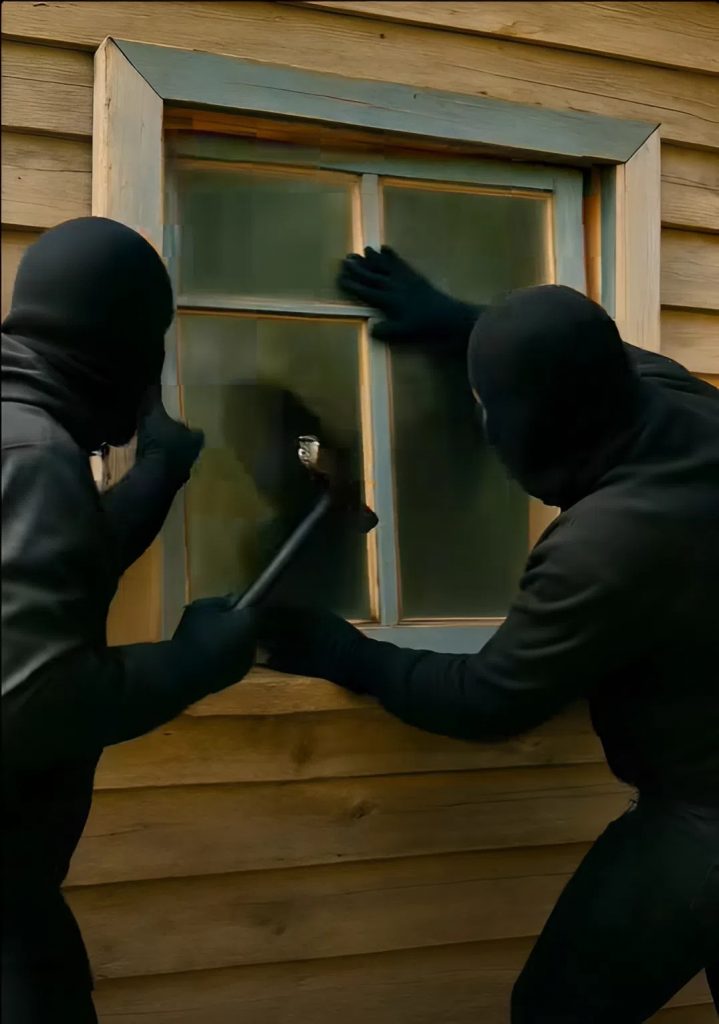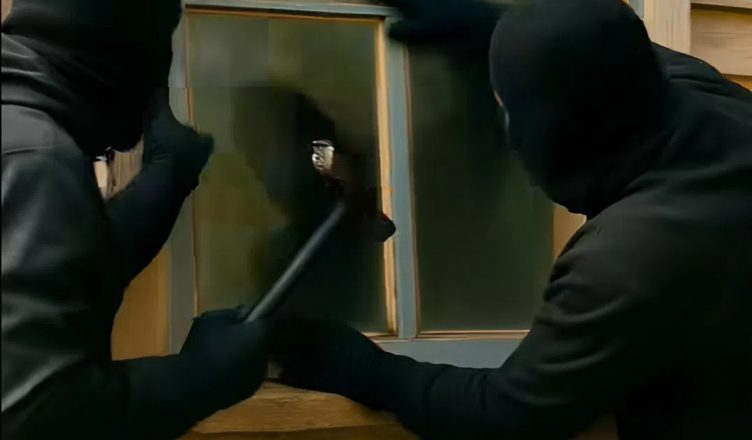They had been watching the neighborhood for days. Sitting in their car every evening, jotting down notes — when the lights went on, when they went out, who came home, who left. Their target was simple: the last house at the end of the street. Faded blue window frames, peeling paint, and a tired, lonely look. Inside lived an old woman nobody really knew. But the thieves knew more than they should.
A neighbor had let it slip — she had a son who lived far away, sending her money every month. She didn’t trust banks, preferred to keep her cash under the mattress. “Old-fashioned,” they’d said. To the thieves, it sounded like the easiest job in the world.
That night, dressed in black, faces covered, they moved silently toward the house. The door was too risky, too noisy. They’d already spotted a window that never closed properly. It opened with a soft creak. They slipped inside.
At once, they were hit by a strange smell — something between burnt wood and something… chemical, alive.
“Smells like something died in here,” whispered one.
“Just an old house,” the other replied, though his voice shook.
Their flashlight beam danced across the room. Porcelain dolls lined the shelves, staring at them with empty glass eyes. One’s face was cracked; another was missing a hand. The air was still, too still.
“Bedroom’s down the hall,” one muttered. “Money’s under the bed. Let’s go.”
The floorboards groaned under their boots. A faint scraping noise echoed from the walls — like nails dragging from the inside.
“Did you hear that?”
“Mice. Just mice,” came the reply.

They reached the bedroom. Everything was exactly as expected — old wallpaper, faded photos, a crucifix above the bed. On the table stood a melted candle beside a black-and-white photograph of a soldier.
One of the men lifted the mattress. No money.
Only scorched newspaper clippings — all about missing men. Each photo had the eyes carefully cut out.
“Jesus…” whispered the thief. “What the hell is this?”
Before he could say more, a light flicked on by itself in the hallway.
Footsteps. Slow. Heavy.
Coming closer.
He turned the flashlight toward the door — nothing there. But in the old mirror on the wall, he saw her.
A small, bent woman in a long white nightgown, silver hair falling over her face.
He spun around — the hallway was empty. But in the mirror, she was still there. Watching.
The bulb flickered and went out.
Then came a sound — a low, trembling song, drifting from somewhere deeper in the house:
“Sleep, my darling… don’t be afraid… it’s all over now…”
The men froze.
The door creaked open on its own.
And there she was.
Tiny, frail, but her eyes — cold, hollow, unblinking.
“Why did you come here?” she asked softly. “I’ve been waiting for you.”
“W-We made a mistake,” one stammered.
“No,” she said with a faint smile. “You came exactly where you were meant to.”
She raised her hand. The chandelier above them shuddered — then fell, smashing to the floor. Sparks flew. The smell of smoke filled the air.
When firefighters arrived hours later, half the house had burned down.
Outside, in a rocking chair, sat the old woman, quietly knitting.
“Are you all right, ma’am?” they asked.
“Of course,” she replied calmly. “My husband took care of them.”
The thieves were never found.
Only two black silhouettes were burned into the wall — like shadows frozen in time.
And sometimes, on windless nights, neighbors swear they can still hear her lullaby floating through the ashes:
“Sleep, my darling… soon it will be your turn…”
